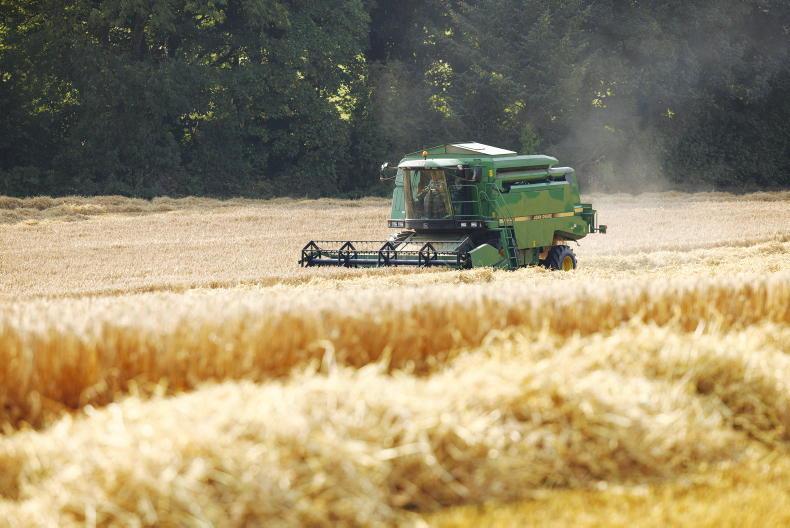This week’s EU-Japan summit in Brussels announced a free trade deal with Japan that is potentially the largest ever agreed by the EU with an external trade partner.
However, it does not take effect immediately and could in fact take until the end of this Commissions mandate in 2019 before the final details are ironed out.
Watch European Agriculture Commissioner Phil Hogan's reply to the Irish Farmers Journal's question on this point in our video below:
Part of the issue is deciding what type of deal and what ratification process is required for this deal.
If it is what is described as a mixed agreement which means it has to be ratified by the EU institutions and individual member states.
Ratification
After approval by the EU institutions, it can take effect provisionally pending ratification by individual member states.
This has been the direction of travel for the Free Trade Agreement (FTA) with Canada in what is known as CETA.
However, one of the implications of the Lisbon Treaty was the delegation by member states of authority to agree treaties to the EU institutions without requiring approval by individual members.
Interestingly, CETA still has not taken effect as technical difficulties around the understanding of access for dairy to Canada under the 18,000t quota are still being worked on.
CETA is unlikely to take effect, even provisionally, before the autumn.
Technical issue
The major technical issue with Japan that has to be resolved is establishment of a disputes resolution mechanism.
The EU has been moving to a multi lateral investment court system (ICS) for Canada Vietnam and other trade deals under current negotiation.
Japan has not yet accepted this model preferring traditional issue by issue resolution, but EU negotiators will continue working to persuade Japan to accept its ICS model.
Deal will not take effect immediately
This all means that farmers won't get the benefit of this trade deal on beef cattle or milk sold to the factories and creameries in the weeks or indeed months ahead.
It is likely that it will at best be calves born this spring or cows milked in the latter part of next year or even 2019 that will be able to access the Japanese market under the new favourable terms.
While it may not be exploited commercially with immediate effect, it does send an important signal to existing customers that options are emerging.
Japan could not replace the volume of the UK to offset Brexit consequences but it will offer another valuable market option for Irish beef, dairy and pig meat sectors.
EU-Japan trade agreement signed in ‘big win for rural Europe’
CAP focus turns to Commissioner Hogan
This week’s EU-Japan summit in Brussels announced a free trade deal with Japan that is potentially the largest ever agreed by the EU with an external trade partner.
However, it does not take effect immediately and could in fact take until the end of this Commissions mandate in 2019 before the final details are ironed out.
Watch European Agriculture Commissioner Phil Hogan's reply to the Irish Farmers Journal's question on this point in our video below:
Part of the issue is deciding what type of deal and what ratification process is required for this deal.
If it is what is described as a mixed agreement which means it has to be ratified by the EU institutions and individual member states.
Ratification
After approval by the EU institutions, it can take effect provisionally pending ratification by individual member states.
This has been the direction of travel for the Free Trade Agreement (FTA) with Canada in what is known as CETA.
However, one of the implications of the Lisbon Treaty was the delegation by member states of authority to agree treaties to the EU institutions without requiring approval by individual members.
Interestingly, CETA still has not taken effect as technical difficulties around the understanding of access for dairy to Canada under the 18,000t quota are still being worked on.
CETA is unlikely to take effect, even provisionally, before the autumn.
Technical issue
The major technical issue with Japan that has to be resolved is establishment of a disputes resolution mechanism.
The EU has been moving to a multi lateral investment court system (ICS) for Canada Vietnam and other trade deals under current negotiation.
Japan has not yet accepted this model preferring traditional issue by issue resolution, but EU negotiators will continue working to persuade Japan to accept its ICS model.
Deal will not take effect immediately
This all means that farmers won't get the benefit of this trade deal on beef cattle or milk sold to the factories and creameries in the weeks or indeed months ahead.
It is likely that it will at best be calves born this spring or cows milked in the latter part of next year or even 2019 that will be able to access the Japanese market under the new favourable terms.
While it may not be exploited commercially with immediate effect, it does send an important signal to existing customers that options are emerging.
Japan could not replace the volume of the UK to offset Brexit consequences but it will offer another valuable market option for Irish beef, dairy and pig meat sectors.
EU-Japan trade agreement signed in ‘big win for rural Europe’
CAP focus turns to Commissioner Hogan










SHARING OPTIONS